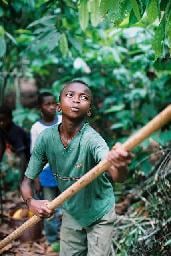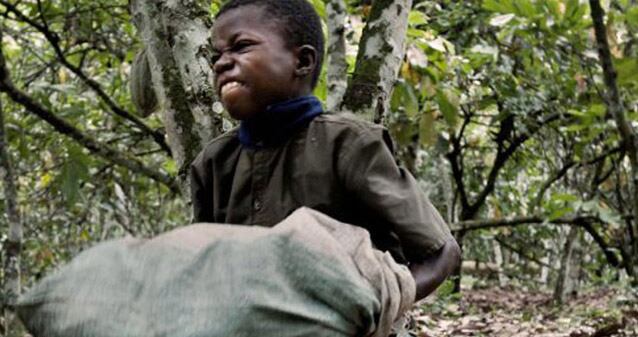The cocoa suppliers and manufacturer are accused of aiding and abetting the luring of the men across the border from Mali to the Ivory Coast in the 1990s, where the then children worked unpaid on cocoa farms which supplied the companies in question. The men will be represented by NGO Global Exchange.
In December last year, a US appeals court ruled that the corporations could face liability for claims bought under the Alien Tort Statute – a law allowing citizens to seek remedies in US courts for human rights abuses occurring abroad. The case was previously dismissed in 2010 on the grounds that such a claim could not be made against a company.
The companies involved deny the charges and maintain that they are committed to upholding international law.
Response to ruling
Louis de Schorlemer, corporate communications manager for Cargill, told ConfectioneryNews: “While we are disappointed in the ruling, we believe this to be a temporary setback and are confident that we will ultimately prevail in this suit.”

He said Cargill is committed to working towards a cocoa supply chain where no children are subject to dangerous or forced working conditions and made reference to its sustainability initiative, Cocoa Promise.
Nestlé told ConfectioneryNews that all allegations remained unproven and that no evidence of the alleged aiding and abetting of child slave labor on farms in the Ivory Coast had been produced. Meike Schmidt, corporate spokesperson for the company, said she believed the court was correct in its 2010 dismissal of the case.
She said: “This decision is in no way determinative of the allegations in the case which remain unproven. Nestlé is committed to following and respecting all international laws and does not tolerate illegal or discriminatory labor practices.”
She said that child labor has no place in its supply chain, as outlined in its corporate business principles and supplier code.
ADM told ConfectioneryNews that it disagreed with the decision and, together with the other defendants, had petitioned for an en banc review, which would mean the case is heard by all the court judges as opposed to by a panel selected from them.
A question of responsibility
The alleged victims have now been granted the right to make changes to their case in order to claim the companies had ‘specific intent’ to violate international law. They must also establish that the companies acted in a way that had a substantial effect on the alleged crimes.
The case has thrown up questions surrounding supply chain traceability and responsibility. Development organizations say child trafficking and labor is still rife in the industry, but complex supply chains make it difficult to point the finger.

Discussing the case with ConfectioneryNews, Friedel Huetz-Adams, commodities specialist for the development NGO Suedwind Institut, said companies should not be able to deflect responsibility. “Until recently companies usually said that they are not responsible for bad labor conditions and low incomes of the farmers. They claimed that they source the cocoa from independent farmers who are responsible for the labour conditions – and that often small traders are between the farmer and the local buying agents of the international companies.”
He claimed child labor is still rife in countries like the Ivory Coast, referencing a France24 report on trafficked Burkinabé children working on an Ivory Coast cocoa farm in September.
Estimates of child labor on cocoa farms in the Ivory Coast and Ghana from organisations like the International Cocoa Initiative (ICI), Unicef and Tulane University have varied from 300,000 to one million children between 2007 and 2013.
Director of the ICI, Nick Weatherhill, told Kenyan News24: "For us, whether it be 300 000 or one million, it shows that the phenomenon is prevalent in all the cocoa-growing areas. It exists in every cocoa-growing community."
Carolyn Kitto, lead activist for Stop the Traffik Australia, echoed this, telling us that human trafficking is an ongoing and deep-seated problem in the cocoa industry.
